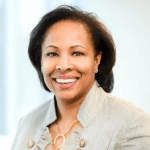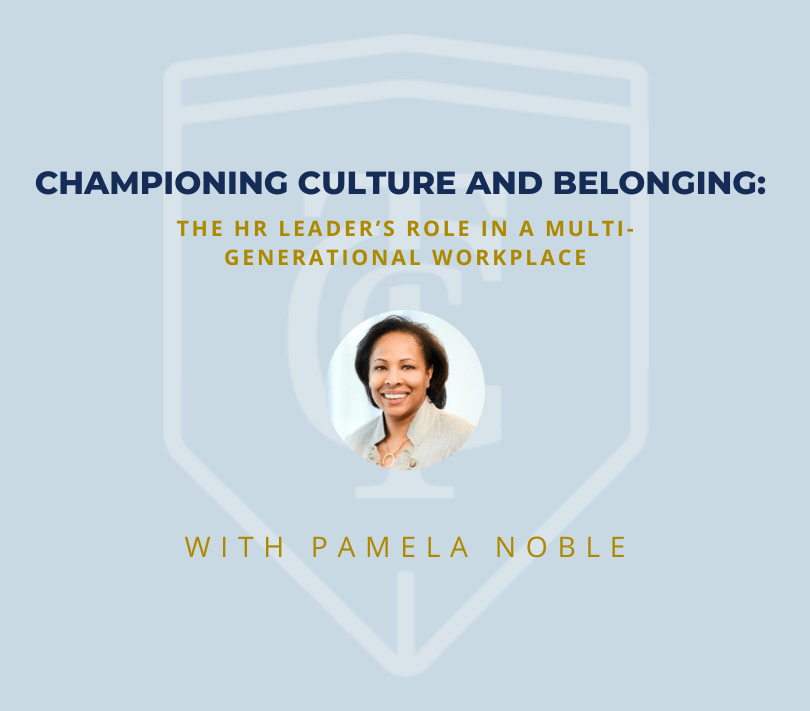
For the first time in history, the workplace is home to five generations working side by side. From the traditionalists who bring decades of experience and wisdom to Generation Z, the tech-savvy digital natives, this unprecedented diversity is both a challenge and an opportunity for organizations. While navigating these differences presents challenges, it also offers opportunities. Employees can learn from one another, engage in mentoring relationships, and should view generational differences as a source of strength. The HR Leader is at the heart of this dynamic landscape, a professional uniquely positioned to shape an inclusive and engaging workplace culture where everyone feels they can thrive.
Culture is more than just a buzzword; it’s the backbone of an organization’s success. A healthy, inclusive culture fosters employee engagement, enhances productivity, and strengthens retention. When employees feel valued, heard, and connected to their work, they are more likely to go above and beyond in their roles. Conversely, a toxic culture can lead to disengagement, high turnover, and diminished organizational performance. Belonging—the sense that individuals are accepted and valued for who they are—is a critical component of this equation. For organizations to thrive in a multi-generational workplace, they must create an environment where everyone feels they belong, regardless of their age, background, or experiences.
One of the HR Leader’s most impactful responsibilities is cultivating an inclusive and engaging culture. This goes beyond setting policies and procedures; it’s about embedding values of diversity, equity, inclusion, and belonging (DEIB) into every facet of the organization. A great HR Leader leads with empathy and authenticity, setting the tone for the organization. They model the behaviors they wish to see—whether that’s active listening, demonstrating vulnerability, or prioritizing mental well-being. Doing so builds trust and creates a ripple effect that influences leaders and employees alike.
Each generational group brings unique perspectives, work styles, and expectations in a multi- generational workplace. The HR Leader is pivotal in bridging these differences by fostering mutual respect and understanding. They tailor communication strategies to resonate with diverse preferences, ranging from face-to-face interactions to digital platforms. They also provide flexible work arrangements that accommodate varying life stages and priorities while offering targeted development opportunities that align with individual and generational goals. By emphasizing collaboration, mentorship, and shared learning, HR Leaders help employees appreciate the strengths that each generation brings to the table.
To champion belonging, the HR Leader must prioritize DEIB at every level. This involves conducting unconscious bias training to ensure fair and equitable treatment. It also includes establishing employee resource groups (ERGs) to create safe spaces for underrepresented voices and using data-driven insights to identify and address disparities within the organization. These efforts create a workplace where everyone feels valued and empowered to contribute.
Employees are increasingly drawn to organizations with a clear purpose and values. The HR Leader has the unique opportunity to align the organization’s mission with its people practices. Doing so attracts top talent and inspires employees to connect deeply with their work. A purpose-driven culture becomes a magnet for engagement and commitment, fostering long-term success.
As the workplace continues to evolve, the role of the HR Leader will become even more critical. By championing culture and belonging, HR Leaders can create workplaces where all generations feel valued and empowered to contribute their best. In this way, they drive organizational success and leave a lasting legacy of inclusion and connection.
About Pam Noble
 Pam Noble joined The Christopher Group in 2019 as the President of the Consulting Services Division and Chief Human Resource Officer. With over 25 years of comprehensive human resource leadership, Pam currently leads the Executive Solutions and DEIB Practice. Her extensive experience as a former CHRO and Chief Talent Officer has enabled her to build HR departments as strategic partners, enhance corporate-wide employee engagement, and spearhead DEIB initiatives—all while maintaining a reputation for high personal integrity.
Pam Noble joined The Christopher Group in 2019 as the President of the Consulting Services Division and Chief Human Resource Officer. With over 25 years of comprehensive human resource leadership, Pam currently leads the Executive Solutions and DEIB Practice. Her extensive experience as a former CHRO and Chief Talent Officer has enabled her to build HR departments as strategic partners, enhance corporate-wide employee engagement, and spearhead DEIB initiatives—all while maintaining a reputation for high personal integrity.
Pam has a Doctorate in Transformational Leadership and Coaching from MIU, where her dissertation focused on unconscious bias. To learn more about Pam visit her bio page.

